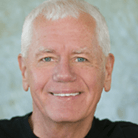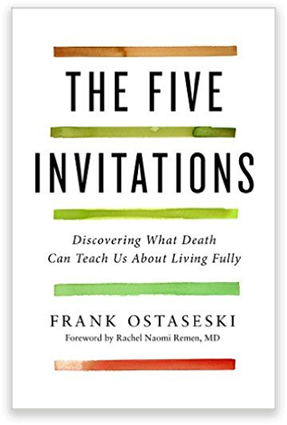The way we talk to our children becomes their inner voice. — Peggy O’Mara
No matter how you try, you can’t please your inner critic.
There is no fooling it. The critic knows your every move, every trick up your sleeve, every bit of your past. It has been right there with you throughout your life. You shower with it. Take it to work. It sits next to you at every meal and even sticks around for dessert. It’s there during and after sex. And yes, it’s even there when you are dying — something I’ve learned over the past thirty years as I have sat on the precipice of death with a few thousand people.
Your inner critic compares, praises, devalues, diminishes, invalidates, blames, approves, condemns, and attacks your appearance, job performance, the way you conduct relationships, your friends, your health, your diet, your hopes and dreams, your thoughts, and your spiritual development. Pick something, anything, as it is all interchangeable. Let’s face it: in the critic’s eyes, nothing you do is good enough.
The critic is the enforcer, demanding compliance to an acquired set of standards and moral codes. It’s the voice that says, “My way or the highway.” And it wields brutally its chosen weapons of fear, shame, and guilt in order to get you to do what it wants.
Often in our most vulnerable moments, when we would benefit from tenderness, we club ourselves with self-judgment. Even near the end of life, it is common for people to look back with regret, to become obsessed with “if only” conversations, or to tell themselves that they aren’t doing a good job of dying. Friends and relatives add to the pile of guilt by projecting their own inner critic’s voice onto the person who is dying, suggesting that he should ght try harder or she should let go more gracefully.
The inner critic is ambivalent about change, shifts in identity, creativity, and inner work, and it is downright terrified of anything bubbling up from the unconscious. The judge prefers status quo, the familiar, the predictable. It insists on homeostasis. “Don’t rock the boat,” it advises. “It’s not safe.”
That’s why focusing on self-improvement or making any attempt to fix what the critic views as “the problem” never works. In seeking the approval of others, conforming to an external standard, and trying to please, we are looking for love in all the wrong places. Praise and blame are symptoms of an infectious disease. And as with any illness, we need to do more than treat the symptoms; we have to address the underlying causes. We need to go to the heart of the matter. We need to see how the habit of constant self-judgment diminishes our life force, steals our inner peace, and crushes our souls.
The pursuit of perfection is learned early on and, for most of us, becomes a lifelong addiction. It is an ego-based quest that easily can eclipse the soul’s journey to wholeness. This is why, in order to bring our whole self to the experience, we must address the often unconscious, corrosive voice of the inner critic. It is the primary obstacle to self-acceptance, trust, and the expansion of our dynamic potential. It stops all growth, arrests inner development, steals our power, and makes negative self-talk the norm. Furthermore, the judge impedes our ability to connect and empathize with other people. Chances are if you’re extremely critical of yourself, you’ll be a harsh critic of others. You may think it even if you don’t say it.
To free ourselves from the inner critic, we have to understand something of its origins, how we are impacted by it, and how we can successfully disengage from its negative influence. In short, our treatment plan includes the application of wisdom, strength, and love.
The first step down the path of freeing ourselves from the inner critic is that we must acknowledge that some of us have a mistaken loyalty to our critic. We think it keeps us sharp and leads to more critical thinking we need in our jobs or to understand the world. Looking closer we see that the mechanism of the critic was formed in early childhood and is pretty simple and unsophisticated.
People often imagine that the negative, grating voice in their heads is helping them. But it’s not. The critic doesn’t believe in our basic human goodness. It only believes in rules and moral codes. Psychologically, the critic is the protector of ego. It denies everything else. It doesn’t know your soul. It doesn’t trust your heart to know how you feel, to be empathic and compassionate in relationships. It doesn’t have faith that your intuitive gut sense can guide you in situations you’re encountering for the first time. The inner critic only wants you to heed its advice. It doesn’t trust in your ability to reason and evaluate as a way to navigate through life’s dilemmas.
Next, we must defend ourselves against the inner critic, which is tough work. It takes practice.
To defend ourselves against the inner critic requires summoning the courage to face the powerful and coercive force head-on. We can start by telling the emotional truth, “That hurts when you talk to me that way”. Expressing disinterest in the critic’s advice, using humor, staying connected to your physical center, harnessing your strength and speaking in short declarative and conclusive statements — are all strategies that are meant to stop the conversation and restore our contact with the dynamic expansiveness that is our essential nature. When we have successfully defended against an attack and disengaged from the critic, we may feel a shift in physical energy, perhaps a release of tension, a free flow of breath. Emotionally, we may feel increased confidence and compassion for what hurts. Mentally, we may have more clarity and less confusion. However, be prepared for residual feelings and sensations, questions and doubts to linger for a period of time. In other words, don’t expect to feel warm and fuzzy right away.
The alternative to the critic is found in the movement from judgment to discernment. Judgment is the harsh, aggressive habit that shuts down the conversation, binds us to the past and old behaviors, and closes off our access to other capacities. Discernment makes space, helps us to have perspective, and allows more of our humanity to show up. It helps us sort what is useful and what isn’t. And then we can decide our course of action.
Lastly, we must learn to accept ourselves for who we are.
It opens up the possibility of accepting ourselves for who we are. With acceptance, what emerges is an increased sense of trust. We release ourselves completely from the comparison, assessment, and rejection of the inner critic. We stop blaming ourselves for having desires and wants, and instead accept these desires as a flavor of love, one that expresses our hearts’ deepest longing for what is true and real.
This process of acknowledgement, defense, and finally acceptance begins an alchemical process. The undesirable can be changed into the desirable not by coercion, but by mindfully embracing our flaws, shortcomings, warts, and all those rejected, painful, and scary aspects of ourselves as part of a whole. We release ourselves from the misguided pursuit of perfection. Instead, we expose our imagined imperfections to the fierce fires of wisdom, strength, and love, and in so doing, we learn to turn lead into gold.




Leave a Comment